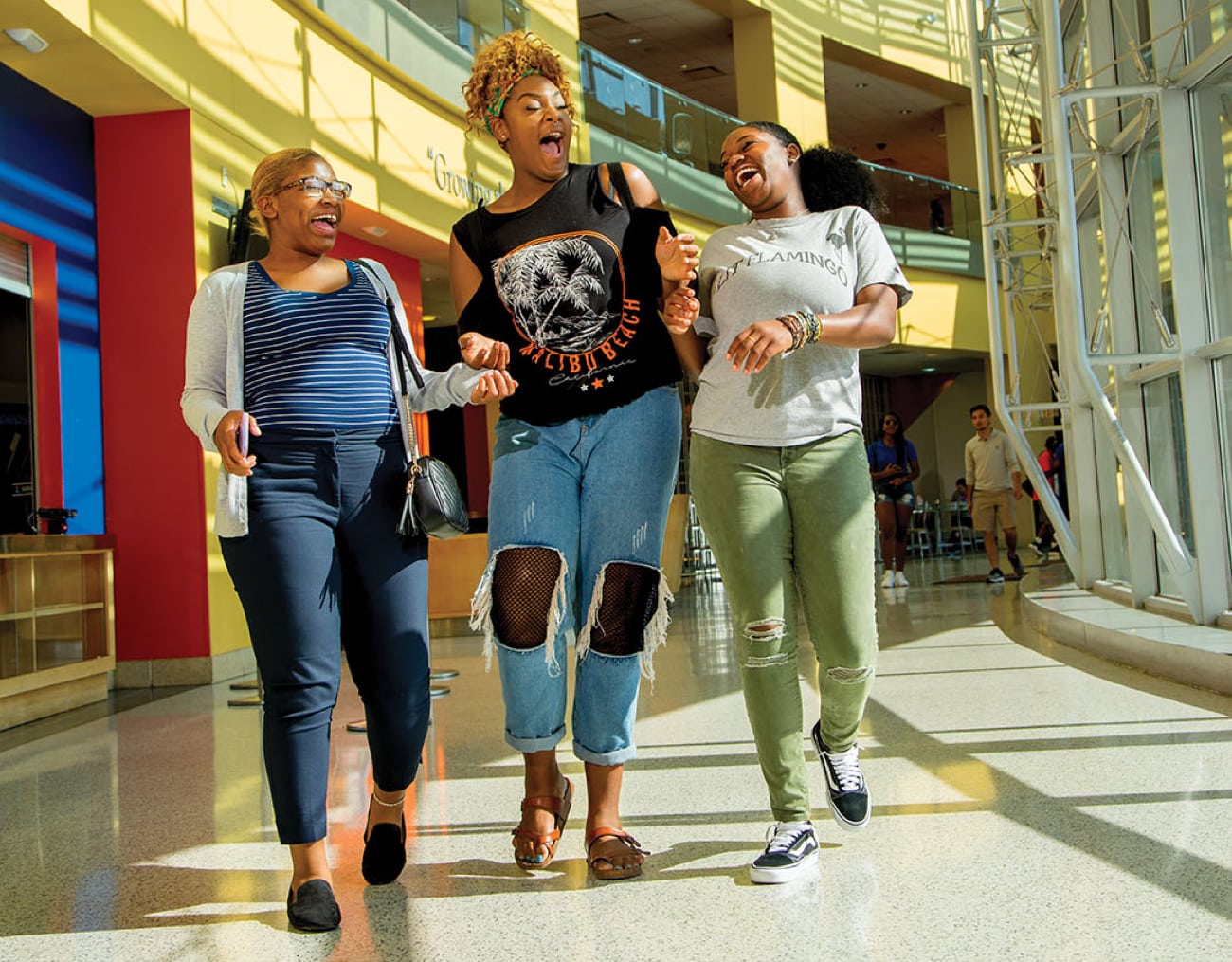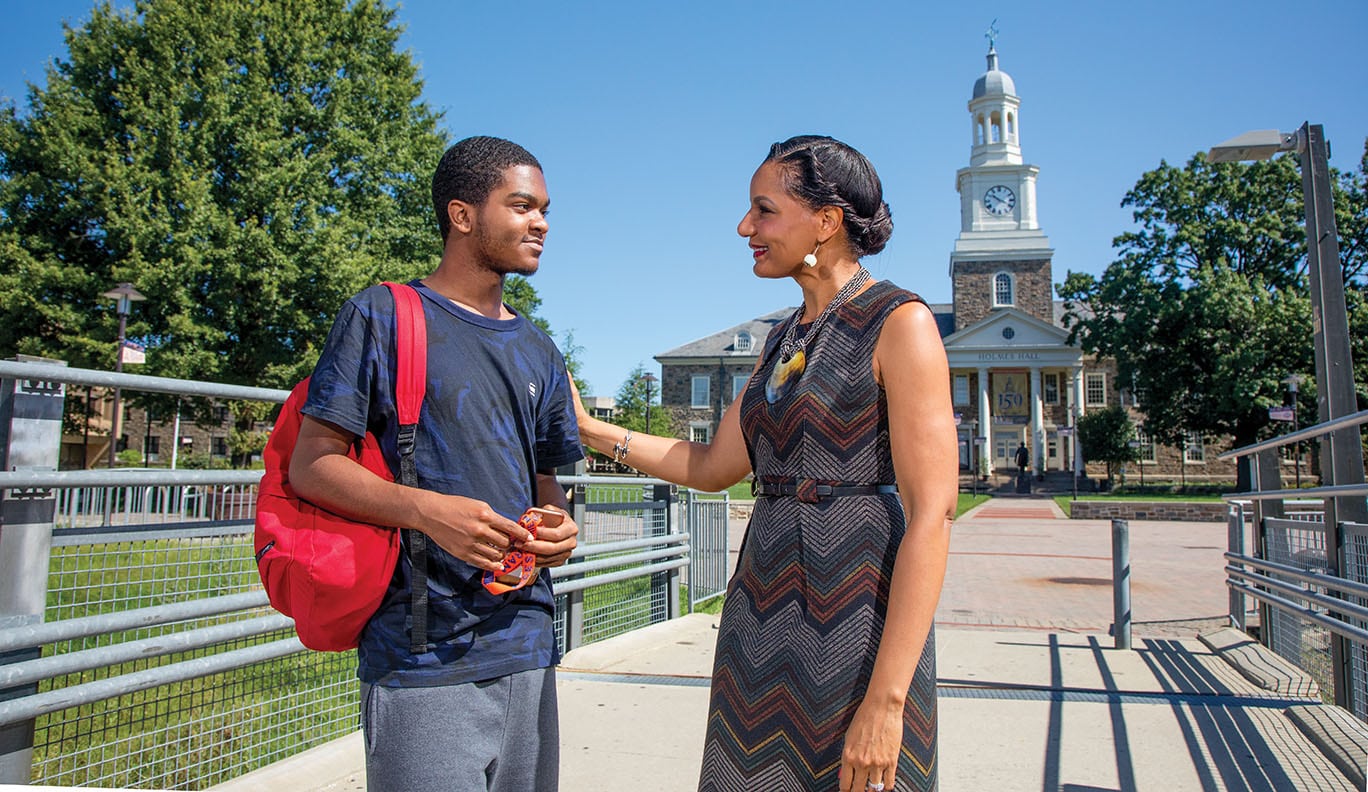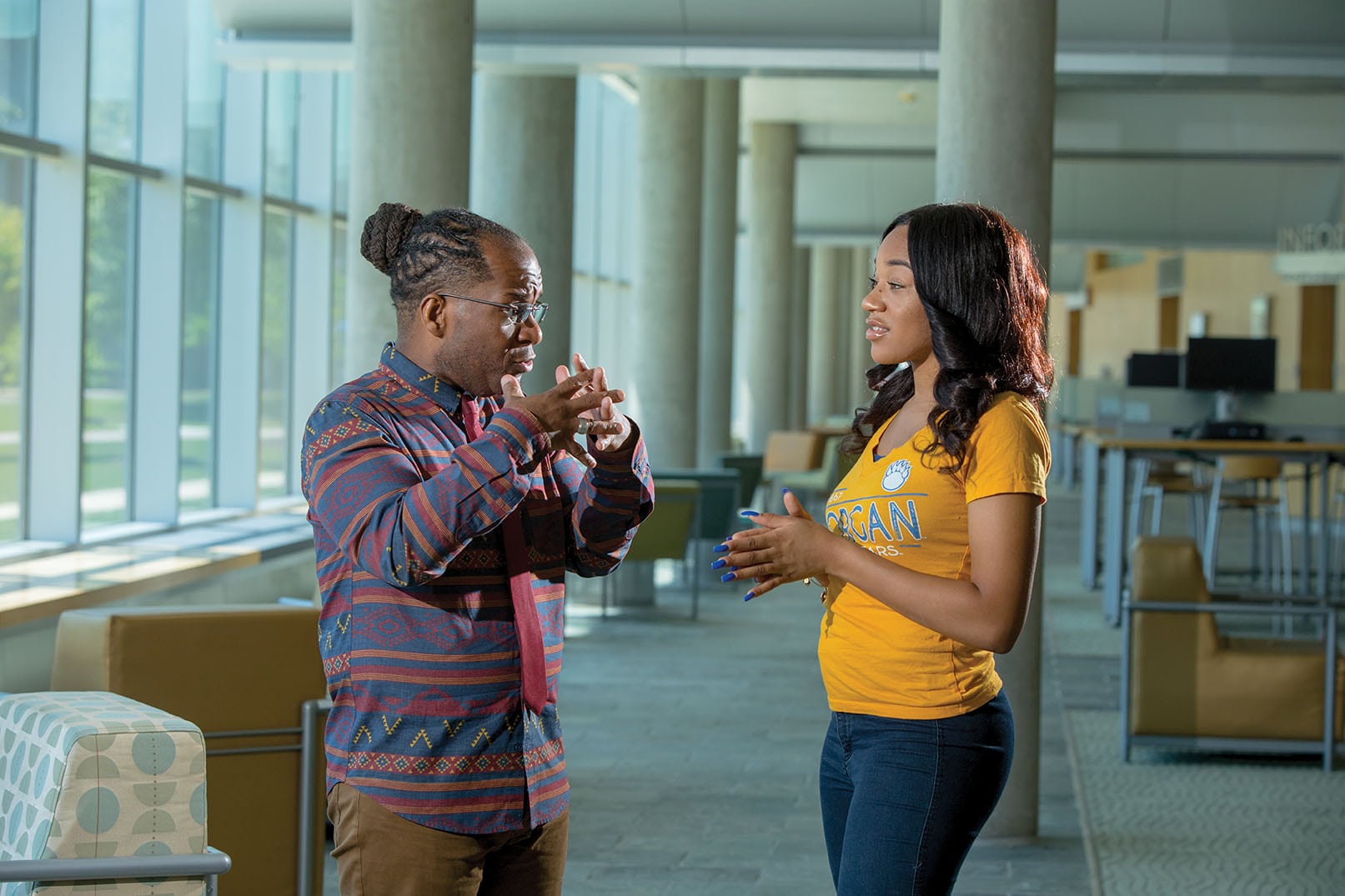BALTIMORE—Deja Jones was hungry.
In December 2017, midway through her second year at Morgan State University, she had run out of money and almost out of food.
“I was flat broke. My roommate was flat broke,” she recalls. “We had to ration maybe a pack of noodles every day, maybe a peanut butter and jelly sandwich once a day—not twice a day, not three times a day. Once a day.”
As she entered a second week on that diet, Jones noticed changes in her energy level and her interest in classes.
“I was literally fainting,” said Jones, a 20-year-old from Atlanta who had moved off campus to try to cut her expenses. “It was a struggle just to get up and go to class. I did not want to go to class. I lost my ambition because I was not nutritionally sound.”
Finally, she decided she had to ask for help.
“I’m a prideful person, so it was hard for me to reach out, but I decided that it was either me reaching out or me not being here,” she said.

Jones belongs to a volunteer organization called the National Council of Negro Women. She decided to go to the organization’s online group chat and let members know she was hungry.
“I was immediately flooded with direct messages. ‘We can help you,’” she said. “They said, ‘Deja, you didn’t have to wait this long.’”
Her sisters in the organization reminded her that the group maintained a food pantry she could use. Other members donated $60 that first day to help her buy food.
“All of a sudden, I wasn’t hungry anymore,” Jones said. “If it hadn’t been for that chapter on campus, I don’t know what I would have done for food for the rest of the month.”
Now preparing for her third year at Morgan State, Jones is studying screenwriting and animation, with a focus on television and film production. She’s moved back on campus with the help of a housing grant from Morgan State—a grant she might have received during her second year had she been aware of it and applied for it on time. Jones didn’t make that same mistake twice, and she made sure that her new room-and-board arrangement includes a meal plan.
She also plans to shoot documentary footage of other Baltimore residents who face obstacles such as food insecurity and uncertainty about housing.
Jones says help from others kept her in school. “After that, my energy was regained,” she said. “Not only was my energy regained, but I have a whole new outlook on life.
“They reached out to me, reassured me, and I really needed to hear that,” she said. “And now we have a food pantry that is open to all students on campus so that no one else has to go hungry.”
Meet basic needs first
Tiffany Beth Mfume hears stories like Deja Jones’ all the time. As Morgan State’s assistant vice president for student success and retention, it’s Mfume’s job to understand—and help students overcome—the barriers that can impede academic progress. That’s why she’s a driving force behind a campus initiative that connects students to an array of services that address these barriers.

“Our goal is to see our students graduate from the institution being well prepared for graduate school, for entrepreneurship, for study abroad and for jobs,” Mfume said. “But they can’t do that if they don’t have their basic needs met: food, shelter, clothing, child care, legal services, car services, and transportation.
“We have found there are many factors that have nothing to do with what’s going on in the classroom, but impact what’s going on in the classroom,” she said.
In short, Morgan State recognizes—along with a growing number of colleges and universities across the nation—that today’s students often need extra help. Many of these students face obstacles—financial, social, and personal—that traditional forms of assistance simply can’t address. And so, these schools are taking a holistic, “wraparound” approach to boost student success.
As explained in the title of a recent report aimed at college and university support staff, these committed institutions are going Beyond Financial Aid. (See sidebar.)
At Morgan State, the principles outlined in Beyond Financial Aid are now official policy. They’ve been incorporated into the university’s “50 by 25” campaign, the effort launched in March 2016 that seeks to increase Morgan State’s graduation rate to 50 percent by the year 2025.
To start, the university formed a committee to perform what Mfume calls a “scavenger hunt” to identify services already on campus (including the food bank that helped Deja Jones) and those offered by the City of Baltimore, Maryland state government, Baltimore County, nearby neighborhoods, and the federal government.
“We had been doing this work unofficially, in a piece-meal way, but this will allow us to do more,” Mfume said.
To inform students and the Morgan State community of the effort and the services available, a new website launched this summer. A printed document explaining the program will soon be widely distributed on the northeast Baltimore campus.
Mfume believes the Beyond Financial Aid effort can have a huge impact at Morgan State, a historically black institution founded in 1867.
With 6,440 undergraduates and 1,300 graduate students, Morgan State is prime territory for such a program. Nearly 40 percent of its undergraduates are the first in their families to attend college; 80 percent are African-American, and 61 percent are eligible for federal Pell Grant assistance, meaning they are from families that make no more than $50,000 a year. Two-thirds of its entering students require developmental or remedial classes.
“We are not planning our Beyond Financial Aid initiative for a subpopulation of students,” said Mfume, a Morgan State graduate. “This is our population. We are planning this for the majority of our students.”
Like many in academia, Mfume serves on a variety of committees that help the university function, including those that plan graduation ceremonies and approve publications. But she says the Beyond Financial Aid committee is different.
“The members of this committee are passionate about the work,” she said. “Nothing is as important as the work we are doing to change the lives of the students we serve. On this committee, we can see right in front of us the needs of our students and how what we’re planning is going to have a direct impact on their ability to be successful.”
‘Everyone embraced me’
Erica Knox had just launched her campaign for Miss Junior, a position in student government, when she learned last March that her mother had died.
She returned home to Brooklyn to join her family in grieving and to begin facing questions about her future: Could she remain at Morgan State? Could she afford to? Or should she transfer to a school in New York, so she could pay lower, in-state tuition?

When she returned to Baltimore later that spring, she was welcomed with open arms by another family, her Morgan State family.
“Everyone was trying to keep things together so I could stay in school,” said Knox, 19. “People at Morgan will try to move mountains for me.”
First, she needed money. The Morgan State University Foundation came up with a $3,000 grant.
She needed housing and a job. After others covered for her during her two-week bereavement absence, she was able to continue working as a desk assistant in a residence hall—a job that also included housing. “That job has kept me in school,” Knox said. “That’s $4,000.”
But most of all, she needed emotional support. Morgan State provided that, too.
“When mom passed, I needed more than finances. It was a mental health thing,” she said. “I was running a campaign, but everything was confusing. I was suppressing a lot of grief.”
Although initially reluctant, Knox decided to visit the university counseling center. She went to counseling and admitted: “It was a relief.” She also made use of the center’s relaxation room, she said, “when the days had just gone on too long.”
“Every time something would happen, every time an obstacle would occur in my way, there was an office—maybe the Morgan State foundation, the alumni foundation, faculty, staff, the Office of Residence Life and Housing, the Student Success and Retention office — each and every one embraced me and has allowed me to see that I should stay here,” Knox said.
Now, she is committed to staying at Morgan State. She won her election as Miss Junior, so she’ll have a busy year in student government. She is majoring in strategic communication.
“In times of need, when I faced obstacles on this journey, they literally allowed me to feel like I should keep fighting each and every day to stay at Morgan,” Knox said.
“Morgan students and Morgan faculty and the Morgan family as a whole really cares,” she said. “They really care outside the finances, outside the academics. They care about my mental health. They care about the things that keep me going every day to attend Morgan State.
“It was really amazing the way they supported me.”
‘How do we find a way?’
Thaddeus L. Price Jr. is often the first responder when a student needs help. His formal title is Academic Improvement Mandate Program Coordinator, but he prefers a simpler one: “success coach.”
“I always tell students: ‘I am your partner in success,’” Price said. “If you give 100 (percent), I’m going to give 100 with you. I’m going to run with you. I can’t do it for you, but I can be there.
“I’m your success coach,” he tells students. “I’m the one telling you that you can do this. You’re gonna do this. I’ve got your back. We are going to make it happen.”
For the last several months, Price has worked to develop the university’s Beyond Financial Aid website.
It informs students about a variety of services—things such as child care, transportation, food, and housing.
It helps connect students with service providers in what Price calls “a judge-free space.”
“On the website, you can find the resources you need, and no one will know,” he said.
But Price, in daily contact with a wide range of students, knows what students often need most: help with the challenges of everyday life.
“The number one reason our students start performing poorly is usually a matter of need,” he said. “For example, deciding whether to come to school or provide food on the table or pay the rent.”
A Morgan State graduate himself, Price said his own experience as an undergraduate in the 1990s showed him that the university community has a big heart. When he was in college, his family home in the Baltimore County suburbs burned down. It was the only time he saw his father, a Vietnam veteran, cry.
But the university community rallied behind the family. Price said his professors sent cards, found clothing for the family, and got them in touch with the Red Cross. Some Morgan staff even gave money.
Now, through the Beyond Financial Aid program, Morgan State has a way of showing that empathy and compassion in a structured, organized way, Price said.
“Our challenge is: ‘How do we find resources? How do we find a way?’” Price said. “And if we can’t find a way, we’ve got to make a way. If we can’t make a way, then we’ve got to become the way.
“But it is our duty, our responsibility, to make sure our students are given every opportunity.”
